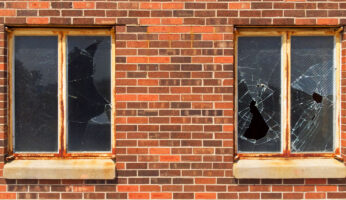Table of Contents
What types of coverage does renters insurance provide?
Renters insurance, which is also known as tenants insurance, contents insurance, or HO4 insurance, offers four types of coverage:
1. Personal property coverage
If your possessions are lost, destroyed, or damaged due to a covered peril, your insurance provider will reimburse you up to your policy’s coverage limit.
Renters insurance typically offers about $15,000 – $30,000 in personal property coverage.
Coverage outside the home
Renters insurance also covers your personal property when it isn’t in your home. If you’re traveling and staying somewhere temporarily, you won’t need to purchase separate short-term renters insurance as your existing policy will still cover you. For instance, if your camera gets stolen as you’re traveling, you can file a claim for it.
Although off-premise property is covered by renters insurance, property that you left in storage may be subject to a low coverage limit. Read our piece on how renters insurance covers storage units for more info.
2. Personal liability coverage
If someone gets injured in your home and seeks compensation from you, your policy’s liability coverage will pay for their medical bills and your legal expenses.
Liability coverage is especially important for dog owners: dogs bite nearly 4.5 million Americans annually, and the average cost of a dog bite claim is $44,760. Thankfully, renters insurance covers dog bites if Cujo misbehaves.
Liability for property damage to others
Your renters insurance policy will also cover it if you accidentally damage someone else’s property. If your washing machine leaks and floods your neighbor’s home, your insurance will cover your liability and reimburse them for their lost items.
Personal liability coverage typically starts from $100,000.
3. Guest medical coverage
If someone gets injured on your property, your policy’s guest medical coverage will cover their medical expenses, whether or not you’re at fault.
As this type of coverage is meant for small, everyday accidents, it has a cap (the maximum your provider will pay) that is much lower than personal liability coverage.
Guest medical coverage usually ranges from $1,000 to $3,000.
How is guest medical coverage different from personal liability coverage?
Guest medical coverage is very similar to personal liability coverage. The difference is that liability coverage only covers situations where you’re at fault (or where somebody sues you and you’re in danger of being found at fault).
Guest medical coverage, on the other hand, kicks in any time a guest is injured in your home. You don’t have to be held legally responsible for your insurance to cover their medical bills.
This type of coverage exists so that your guests don’t have to sue you for minor injuries. If your friend trips over your dog and sprains their ankle, or you undercook their chicken parmesan and they get food poisoning, they presumably don’t want to take you to court over it. Having guest medical coverage ensures that they won’t have to.
4. Loss-of-use coverage
If a disaster renders your home uninhabitable and you need to move out temporarily, your renters insurance loss-of-use coverage will reimburse you for the additional living expenses you incur.
For instance, renters insurance will cover your hotel stay and reimburse you if you have to pay for more gas (due to a longer commute) or eat at restaurants more often than normal. Loss-of-use coverage is meant to let you maintain your normal living standards while your home is being repaired.
However, it doesn’t cover the total cost, just your additional expenses. For instance, if you typically spend $150 per week on groceries but now spend $300 eating at restaurants because you can’t use your kitchen, your policy will reimburse you for the additional $150, and not the full $300. To do this, your insurance company will assess how much you normally spend.
Loss-of-use is generally capped at $9,000, or approximately 25% to 30% of your personal property coverage.
What perils does renters insurance cover?
Renters insurance covers many types of perils (disasters that cause damage to your property). Your coverage will also depend on the type of policy you purchase – either a named peril or an all-risk policy. Below is a comprehensive list of perils that most renters insurance policies cover by default.
Covered perils
- Fire
- Wildfire
- Smoke damage
- Tornado
- Volcanic Eruptions
- Explosions
- Hail
- Weight of snow and ice
- Windstorms
- Water damage
- Mold (when it grows because of another covered peril)
- Riots
- Theft
- Vandalism
- Damage by aircraft
- Damage by a vehicle that isn’t yours
- Falling objects
- Damage of heating systems
- Short-circuit damage
However, renters insurance doesn’t cover every peril.
Excluded perils
Disasters that aren’t covered by renters insurance are called excluded perils. Renters insurance tends not to cover these types of disasters because they can cause widespread damage that would make your otherwise cheap renters insurance policy far more expensive.
Renters insurance policies generally exclude:
Earthquakes
Renters insurance doesn’t cover damages caused by earthquakes. However, if an earthquake directly causes another covered peril like a fire, your policy will reimburse you for your loss (from the fire).
If you live near a fault line, consider purchasing additional coverage, like an earthquake endorsement or a separate earthquake insurance plan.
Floods
Floods are not covered by renters insurance. However, water from internal sources (like pipe explosions) isn’t considered “flooding.” Damage from burst pipes is usually covered.
If you live within or near a flood zone, you can either add a flood endorsement to your policy or purchase a separate flood insurance plan.
Pest infestations
Damage to your personal property caused by bed bugs, cockroaches, and rodents isn’t covered. However, if you’ve read our piece on whether renters insurance covers bed bugs, you’ll know that your landlord might be responsible for paying to exterminate them.
What items does renters insurance cover?
The rule is simple: if an item belongs to you and it’s damaged or lost due to a covered peril, your renters insurance will pay for it, as long as it isn’t covered by another type of insurance (like your landlord’s insurance, or your own auto insurance).
To be extra clear, renters insurance covers all of the following:
- Bike theft
- Theft from your car
- Food loss
- Food spoilage
- Cash
- Gold and silver bullion
- Carpet stains
- Carpet burns
- Broken TV
- Appliances (like a broken refrigerator or washing machine)
- Broken laptop
- Items stolen outside the home
- Items in transit (i.e. while you’re moving)
- Items in storage units
- Wedding or engagement rings
Be aware that in the case of some items like carpets, unless you paid for and installed them, they belong to your landlord. Items like that are covered by your landlord’s insurance policy, not renters insurance.
However, if you caused the damage to your landlord’s items, your renters insurance will cover your liability for the repairs.
Items not covered by renters insurance
While renters insurance covers most of your property, there are some key items it doesn’t cover. There are also some limits to the items it does cover.
Your car
Damage to your car isn’t covered by renters insurance. That’s what auto insurance is for. However, if your belongings get stolen from your car, renters insurance will reimburse you for them.
Your building
Any damage to the structure of your building is your landlord’s responsibility. However, if you negligently cause a fire and your landlord seeks compensation from you, your insurer will cover your liability.
Your roommate’s items
Your renters insurance policy only covers your personal property, unless you specifically add other people onto it. If your fridge breaks in a power outage and your food spoils, your insurer will only cover your food loss, not your roommate’s.
While it’s possible to share your renters insurance with your roommate, it’s best for them to purchase their own policy to avoid potential disputes and confusion when filing a claim.
Firearms and other expensive items
Firearms usually have a sub-limit of $2,000 – $3,000. Sub-limits are the caps on how much coverage your insurer will provide.
Most renters insurance policies have several sub-limits that apply to specific circumstances, perils, or belongings. Expensive items like fine art, furs, and jewelry usually have sub-limits. You may need to purchase an endorsement or a standalone insurance policy to fully cover them.
Adding additional coverage onto your plan
Some insurers will let you purchase additions to your policy to cover normally excluded perils. These are called endorsements or riders. Their availability depends on your location and the insurer.
While riders increase your coverage, they also make your policy more expensive. However, renters insurance costs between $12 to $15 per month, making it one of the cheapest kinds of insurance even if you do purchase a rider.
Common renters insurance riders
Most providers offer the following:
- Scheduled personal property riders: These increase the coverage limit for a particular type of possession. This is referred to as scheduling. For instance, if you own a collection of fur coats, you might add a rider to “schedule” furs and increase the cap on their coverage from $2,500 to $8,000.
- Additional perils riders: These extend your coverage to include types of damage that aren’t included in a basic policy. For instance, if your renters insurance policy doesn’t include liability insurance for your pet, then your provider might offer a pet damage rider. Similarly, if your policy doesn’t cover water damage from clogged pipes, then your insurer might offer a water backup rider.
- At-home business rider: If you work from home as a small-business owner or a freelancer, your equipment (including your work laptop) might not be covered by your renters insurance policy. If that’s the case, you can cover it with an at-home business rider which might also allow you to claim tax deductions on your renters insurance premiums.
- Floaters: If you have a few items that are particularly expensive — for instance, if you own one really expensive fur coat, but you don’t have a whole collection — you can purchase something called a floater. This increases the coverage limit for that specific possession without requiring you to schedule that entire class of items.
Some companies offer other types of riders, so you should check your provider’s website for more information.
Note that you can’t cover your roommates with a rider. If you live with other people, you either need to add them to your policy or they need to buy their own. Sharing a policy can also cause confusion when you need to file a claim, so it’s best for your roommate to also purchase their own renters insurance.
Related Questions
- What is guest medical coverage in renters insurance?
- What is a sub-limit in renters insurance?
- Does renters insurance cover home-based businesses?
- Does renters insurance cover gold or silver bullion?
- What does "dependent in the care of" mean in renters insurance?
- Does State Farm renters insurance cover hotel stays?






